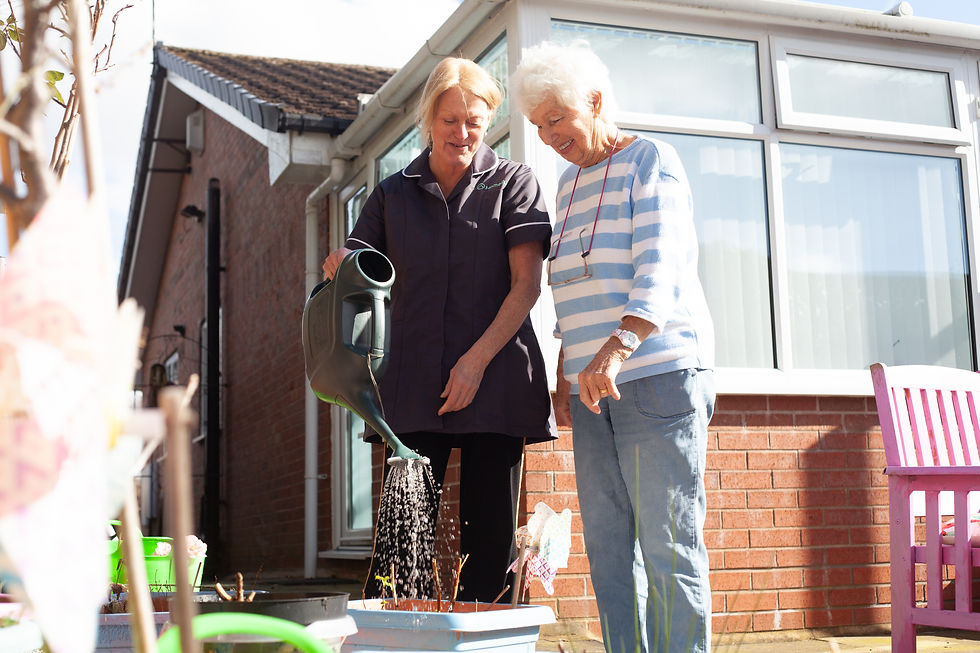Understanding Osteoporosis: Protecting Bone Health and Independence
- Homelium

- Oct 2, 2025
- 2 min read

Osteoporosis is often called the “silent disease” because it develops slowly over many years and often goes unnoticed until a fracture occurs. Yet it affects millions of people worldwide, particularly older adults and can have a big impact on independence and quality of life.
At Homelium Care, we understand how important it is for our clients and their families to be aware of conditions like osteoporosis, so they can take steps to protect their health and continue living safely and confidently at home.
What is Osteoporosis?
Osteoporosis is a condition where bones become weaker, more brittle and more likely to break. It happens when the body loses too much bone, makes too little bone, or both. Over time, bones become fragile, meaning even a small fall, bump, or strain can cause a fracture.
Who is at Risk?
While osteoporosis can affect anyone, some people are more at risk than others:
Age – risk increases as we get older.
Gender – women are more likely to develop osteoporosis, especially after menopause.
Family history – genetics play a role in bone health.
Lifestyle factors – smoking, heavy alcohol use and lack of physical activity can increase risk.
Medical conditions or medications – certain illnesses and long-term medications can affect bone strength.
Why Bone Health Matters
For older people, osteoporosis can make everyday activities feel more uncertain. A simple fall can result in a broken bone, which can lead to hospital stays, reduced mobility and in some cases, a loss of independence. That’s why awareness, prevention, and early action are so important.
Preventing and Managing Osteoporosis
The good news is, there are steps people can take to strengthen and protect their bones:
Balanced diet – eating foods rich in calcium and vitamin D (like dairy products, leafy greens and oily fish).
Weight-bearing exercise – activities like walking, dancing, or light strength training help keep bones strong.
Healthy lifestyle choices – quitting smoking, limiting alcohol and staying active all support bone health.
Regular check-ups – bone density scans and speaking with a GP can help identify risks early.
Safe environments – making small changes at home, like removing trip hazards or adding grab rails, can reduce the risk of falls.
How Homelium Care Can Help
Living with osteoporosis doesn’t mean losing independence. With the right support, people can continue enjoying life at home, surrounded by their memories and routines.
At Homelium Care, our carers provide:
Assistance with daily tasks to reduce strain and risk of falls.
Support with mobility and safe movement around the home.
Companionship to encourage confidence and reduce feelings of isolation.
Peace of mind for families, knowing their loved one is safe and supported.
Final Thoughts
Osteoporosis is common, but it doesn’t have to define someone’s later years. With awareness, preventative steps, and the right support, it’s possible to live well, stay independent, and feel confident at home.
If you’d like to learn more about how Homelium Care can support you or a loved one with osteoporosis, get in touch with our friendly team today.
Call us on 📞0333 3448 677 or fill out a contact form https://www.homelium.com/contact



Comments